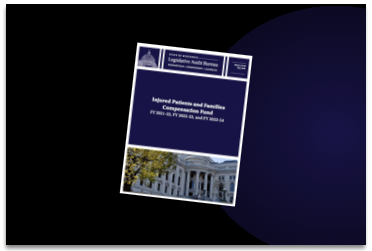Thursday, June 13, 9:22pm
Will the 2024-25 Fiscal Year Budget passed by the MPS Board be the last spending plan voted on by many of its members? The Board just passed the $1.5 billion budget on a 7-1 vote.
Membership on that board could soon be vastly different.
As first reported here at Dairyland Sentinel earlier this week, the Milwaukee Public Schools have a unique relationship with City of Milwaukee government. Because it is designated as a city of first class size in the state statutes, the laws governing MPS operations include significant involvement of the City.
But can the Common Council really remove elected members of the school board? Well, according to an analysis conducted by Wisconsinites for Law & Liberty indeed it can.
WILL spells it out in a six-page memo, recently obtained by Dairyland Sentinel. The relevant section reads:
MPS Board of Directors’ and Milwaukee Common Council’s powers to remove an MPS board member
The MPS Board of Directors may remove members for “malfeasance” Wis. Stat. § 119.12(1) and the Milwaukee Common Council also may have authority to remove an MPS board member under Wis. Stat. § 17.12. These statutes are somewhat related as noted herein, and will be discussed together.
Under Wis. Stat. § 17.12, “Officers of cities, except public officials, as defined in s. 62.51 (1) (b), operating under the general law or under special charter including school officers” may be removed “by recall as provided by Wis. Stat. § 9.10, or by the
common council, for cause.” As already noted, “cause” under Ch. 17 means “inefficiency, neglect of duty, official misconduct, or malfeasance in office.” Wis. Stat. § 17.001. The vote required by the common council to remove someone under this provision is three-fourths of all the members. Wis. Stat. § 17.12(1)(d).That statute references “school officers,” but here again, that’s not a defined term. And again, it’s not entirely clear it applies to MPS board members.
Wis. Stat. § 119.12(1) provides that “[b]oard members are subject to all restrictions, liabilities, punishments and limitations, including recall under s. 9.10 (4), prescribed by law for members of the common council in their city. A majority of the members−elect of the board may dismiss from office for malfeasance any member of the board. The board shall provide by resolution the manner of hearing and disposing of complaints against a board member.”
Under Wis. Stat. § 119.12(1), the MPS board is required to adopt procedures by resolution for hearing and disposing of complaints against a board member. They have done so through the adoption of Board Rules 1.244 (censure) and 1.255 (removal), and “Appendix B” to the board rules (entitled “Procedures to Censure or Remove a Board member under Board Rules 1.24 and 1.25” 6). The MPS Board’s removal power itself is limited to removing board members for “malfeasance” and such removal requires a simple majority of the board, however under board rules, beginning the process requires more: under Board Rule 1.25, “The initiation of any investigation of alleged malfeasance misconduct shall require a recorded affirmative vote of two-thirds of the Board’s membership.”
But Wis. Stat. § 119.12 also subjects board members to “all restrictions, liabilities, punishments and limitations, including recall” that are prescribed by law for members of the common council their city. A common council member may be removed under the authority provided by Wis. Stat. § 17.12. The question then is whether that removal which common council members are subject to under that provision is considered part of the “restrictions, liabilities, punishments and limitations” that are also applied to MPS Board Members under Wis. Stat. § 119.12.
The plain meaning of those terms would indicate that it does, but the phrase “including recall,” we believe, makes it even clearer. Based upon the context, it seems that even if “school officers” under Wis. Stat. § 17.12 does not apply to MPS board members, Wis. Stat. § 119.12(1) makes them subject to it in the same manner that common council members are.
So then, acting either on Wis. Stat. § 17.12 or combining it with Wis. Stat. § 119.12(1), there is an argument to be made that board members of MPS can be removed by the common council, for cause, with a three-fourths vote of all members of the common council, which in this case would be 12 total votes from the 16-member common council. We note that we could not find any record of this power ever having been used against an MPS board member.
The same filing/investigation/hearing procedure as applied for a Wis. Stat. § 17.13 removal applies here, including the potential for the payment of costs by a complainant as well as the potential requirement to post a bond, and those procedures are laid out in Wis. Stat. § 17.16. Except, if acting under Wis. Stat. § 17.12, instead of being submitted to a judge, the verified charges would be submitted to the common council, who would then conduct the investigation and hold a hearing.
So, according to WILL’s legal analysis, if a complaint is filed with the Common Council by a City of Milwaukee resident, the Common Council would hear the complaint and it would take a three fourths vote of all members to remove a member of the Milwaukee Public Schools Board for cause.
This confirms the assertion made by a columnist in Dairyland Sentinel earlier this week.


















